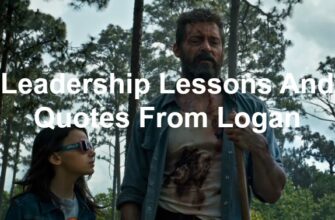What causes people to make poor decisions? I use to chalk it up to intelligence, but I know many smart people who have done some pretty dumb things. It could be a lack of experience, but research shows we tend to repeat our mistakes. Instead of continuing to speculate, which only demonstrates my decision making deficiencies, lets refer to the research.
According to a study of more than 50,000 leaders from the Harvard Business Review, the authors were able to identify the most common behaviors leading to poor decision making. As I read through the list, a group of men popped into my mind that personifies the inability to make sound decisions. A group of men who when faced with expulsion from college, chose to throw an elaborate toga party. That’s right, I’m referring to the men of Animal House.
College is full of bad decisions, but our friends from the Delta Tau Chi fraternity took it to a whole new level. While more extreme (and entertaining) than most of our shoddy choices, they found a way to demonstrate every behavior leading to poor decision making as identified by the research previously mentioned. A few of these behaviors include:
Laziness. It’s not surprising that this is the most impactful factor on poor decisions. When warned about a low grade point average, common sense says to study harder. Delta Tau Chi choose the lazy way out; they stole the answers to the big psychology test. If any one of the Deltas had cracked a book, they would have realized that every answer on the cheat sheet was incorrect.
When we don’t take the time to confirm information, fail to challenge status quo, or take unwarranted shortcuts, we are displaying the attributes of laziness. We need a sense of intellectual curiosity to delve deeper into the details. Once we’ve taken the initiative to collect more information, we are capable of making more informed, sound decisions.
Not anticipating unexpected events. If you’ve seen it once, you’ve seen it a hundred times. An employee is bullied so he sneaks a horse into the boss’ office and pretends to shoot it with a gun full of blanks. How can anyone anticipate a downside to this plan…like the horse having a heart attack?
Research shows that if we take the time to ponder potential threats, weaknesses, and speed bumps, we dramatically increase our chances of anticipating and mitigating problems. Unfortunately, critical thought is often eluded once excitement begins to build. It’s okay to be enthusiastic, but retain some semblance of skepticism that the perfect plan may not be so perfect.
Having no strategic alignment. Too often we solve an immediate problem only to find that our solution had no (or an adverse) affect on our long-term goals. It’s like when you and your friends are being kicked out of school so you construct a rogue parade float to wreak havoc on the homecoming parade. Wait, what? How does that help me get back into college? Exactly.
With the overwhelming amount of data we face every day, there is often a breakdown between our efforts and the overall strategy. It’s easy to get lost in the short-term solutions and miss the big picture. We need to connect our work to the overarching goals. This creates better decisions that link to the priorities that truly matter.
As much fun as it would have been to join the Delta “Animal” house, we live a life where our actions have consequences. A bad decision today can have long lasting effects on both us and our organization. Since we don’t have a devil and angel on our shoulders to weigh the alternative choices, make a conscious determination to seek contradictory viewpoints. It takes work but it’s better than being placed on double secret probation.






